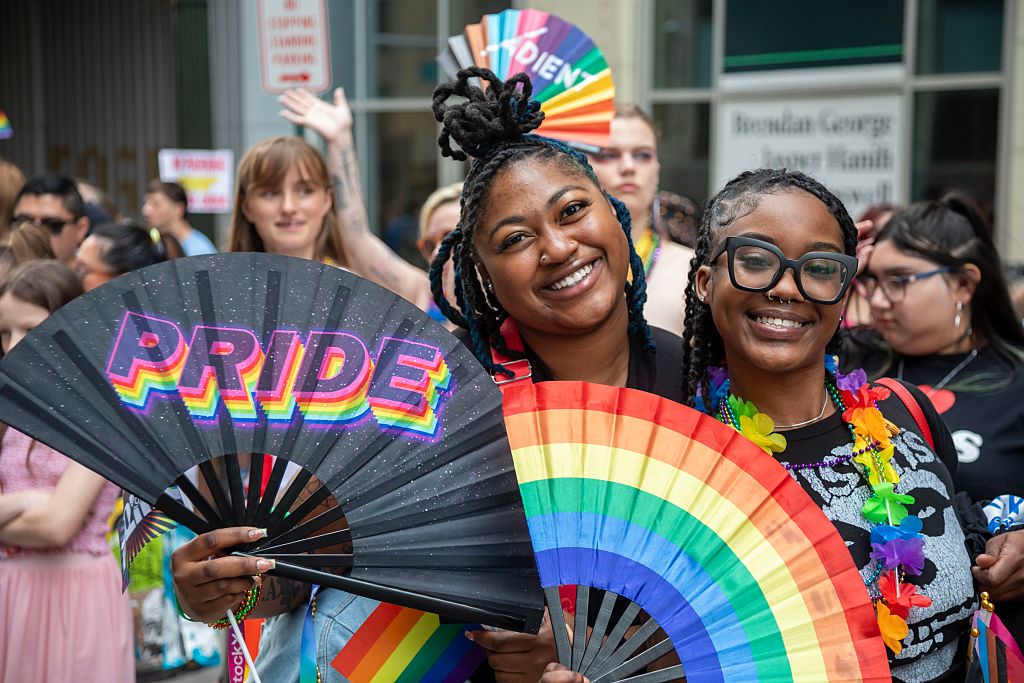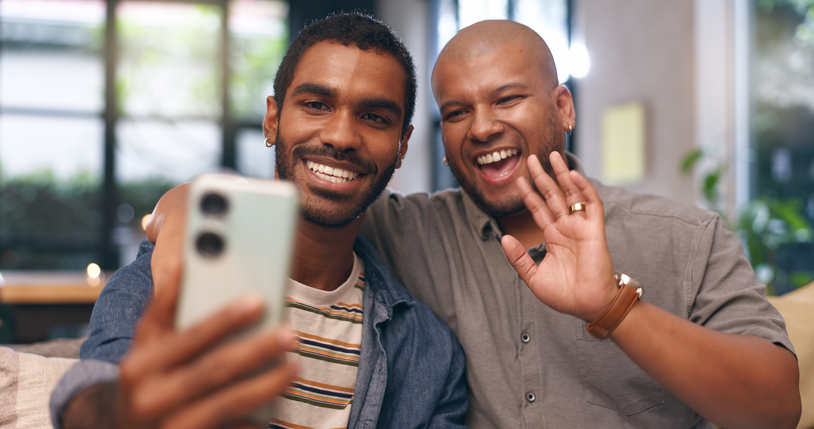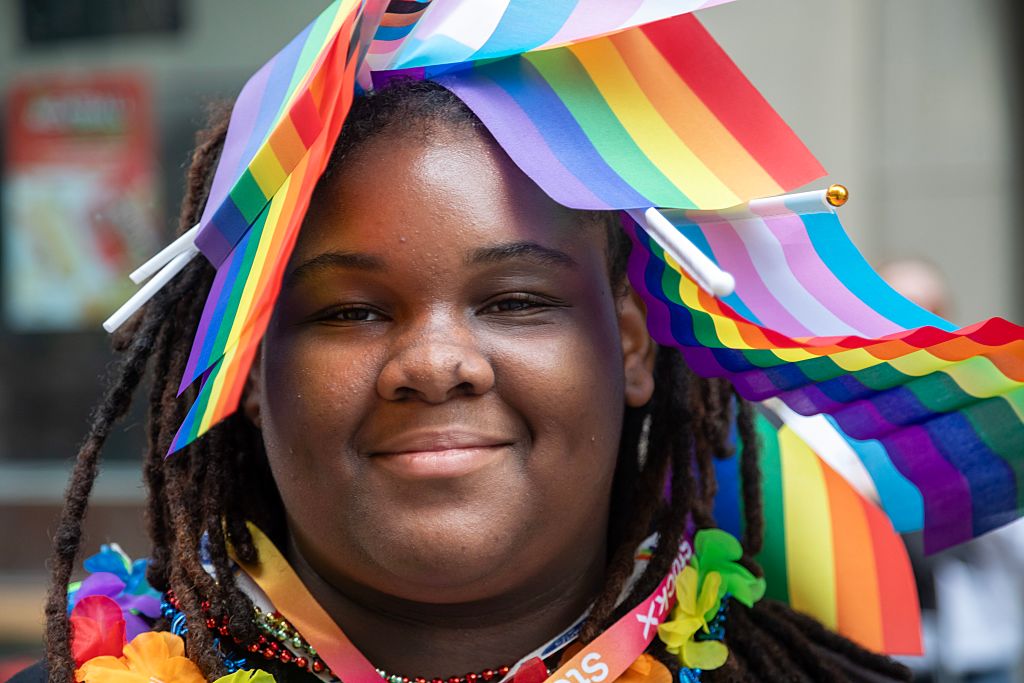Queer And Trans People Didn’t Survive Pride To Be Erased By The Supreme Court

When I was a kid, I never saw myself in the classroom. Not in the books we read. Not in the stories my teachers told. Not in the lessons about families, love, or community.
As a Black queer boy, I learned early what it meant to be invisible — to grow up surrounded by silences so heavy they shape how you see yourself and what you believe is possible. So, decades later, as an attorney, when I read the Supreme Court’s ruling in Mahmoud v. Taylor this Pride Month — a decision that makes it easier for parents to pull their kids out of public school lessons about LGBTQ+ people — I felt that old ache all over again. And I know I’m not alone.
In a 6–3 decision, the court sided with families in Maryland who claimed their “sincerely held religious beliefs” gave them the right to opt their children out of any lesson that even mentions LGBTQ+ people or families. The lessons weren’t graphic sex ed or “adult content.” They were basic, age-appropriate stories acknowledging that queer and trans people exist. That our families are real. That our lives matter.
Apparently, to this court, our existence is optional.
Let’s be clear about what this means. Public schools are supposed to be one of the few places where young people learn about communities, cultures, and people different from their own. That’s not radical; that’s the promise of public education. It’s not “indoctrination” to tell the truth. It’s not radical to say that queer and trans people exist, have always existed, and deserve to be part of the full story.
For so many kids — especially those who grow up in families or communities where being LGBTQ+ is condemned or erased — the classroom may be the only place they learn that they’re not alone. I didn’t have that. I remember scanning my school library shelves for someone — anyone — who looked or loved like me. Nothing. No stories about Black queer boys trying to figure themselves out. No characters who felt like a permission slip to dream a bigger life. That void shapes you. It makes you feel like you’re the problem, like your existence is something that should be edited out.

And what about the kids who aren’t queer or trans? They deserve the truth, too. They deserve an education that reflects the full, messy, beautiful reality of the world, not a version scrubbed clean to keep some parents comfortable in their prejudice. When you opt kids out of reality, you’re teaching them that LGBTQ+ people are a threat or taboo, instead of neighbors, classmates, and family.
So, no — don’t call this “religious freedom.” True religious liberty means we each get to believe — and exist — without erasing each other’s humanity. Bigotry wrapped in the language of faith is still bigotry. And it has no place in a public school that’s supposed to serve everyone.
It’s not lost on me that this decision came down in the final days of June, when the Supreme Court often releases its most controversial rulings. But for LGBTQ+ people, that timing stings even more because June is Pride Month: a time when we’re supposed to be louder about our stories, our survival, and our joy. Instead, we’re forced to watch the highest court in the country hand bigots a permission slip to pretend we don’t exist. This isn’t just about one family in Maryland — it’s part of a much bigger, coordinated backlash. From book bans to “Don’t Say Gay” laws to curriculum censorship, the goal is the same: erase us from public life until there’s no evidence we were ever here.
But we were. And we are. And we’re not going anywhere.
For the queer and trans students sitting in classrooms right now, representation shouldn’t feel like a privilege. Every young person deserves to see their whole self reflected in their education. Teachers should be able to say the word “gay” or “trans” without fearing a lawsuit. School shelves should hold books that tell stories kids can see themselves in — and ones that open doors they didn’t even know they could walk through. Feeling seen should be the baseline, not the exception.
Telling young people the truth about the world gives them a chance to grow up whole, to see difference not as danger but as part of what makes life richer and more beautiful. This ruling insults that vision, and every student who needs to know they belong.

But this moment can’t only be about despair. Anger can be useful when it fuels action. There are ways to push back: show up at local school board meetings when books and inclusive curricula are under attack. Run for those school boards if possible. Support groups fighting censorship and curriculum bans — organizations like GLSEN, PFLAG, the ACLU, or local queer youth alliances doing the work every day. Talk with the young people at home and in the community — remind them they are loved exactly as they are.
Even small acts matter. Check that the local library includes queer and trans books on its shelves — and donate some if they’re missing.
Advocacy isn’t always about giant national fights — it’s about what happens in classrooms, libraries, and school board meetings in our own backyard. The same places where erasure happens are the same places where we can show up, speak up, and refuse to disappear.
I keep thinking about that little Black queer kid I once was. How different it could have been if I’d seen myself on the page. How many years it might have saved me from believing I was the problem. There’s a generation of young people right now who don’t have time for that shame. They’re bolder. They’re fighting back. They remind me why we keep showing up for each other.
Pride has never been just about rainbow flags and parades. It’s about resistance — about refusing to disappear, no matter how many people wish we would. They can ban our stories, but they can’t ban us. They can try to silence our teachers, pull our books off shelves, and rewrite the curriculum — but they can’t erase our existence, our history, or our future.
We didn’t survive this long just to be edited out of a lesson plan. We survived to be seen, to be heard, to keep showing up for each other — Pride Month and every month.
And we will.
Preston Mitchum is the founder of PDM Consulting, based in Washington, D.C. His work focuses on racial justice, gender equity, LGBTQ+ liberation, and the pursuit of policies that move beyond symbolism to create lasting change.
SEE ALSO:
Pride Is Still Protest: World Pride In The Era Of Trump 2.0
Op-Ed: Bowser Gave Up The Mural. We Can’t Give Up The Movement




